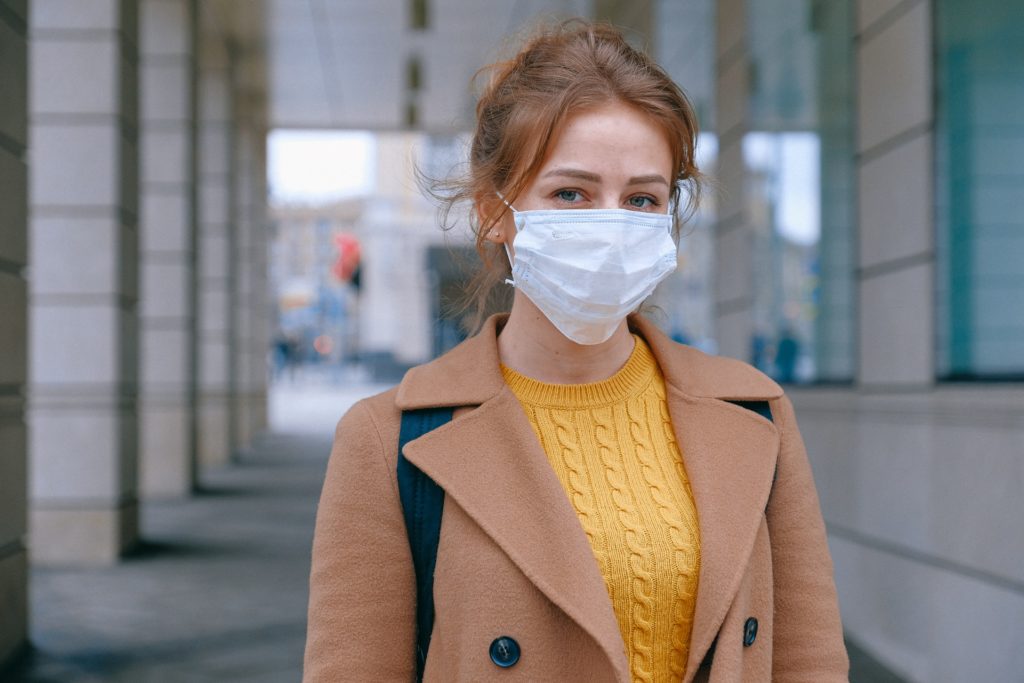
By: The Resource Group Team
After more than a year of living through a global pandemic, it is finally starting to seem like there is a light at the end of the tunnel. But for many people, there is simply more darkness. Even as the vaccinations roll out and states begin to reopen, the damaging mental health effects of the pandemic will continue long after the virus has passed.
Just over a year ago, the full extent of a looming global pandemic was becoming clear. Many began to work from home while others were forced to risk exposure by continuing to go to work in person. Lockdowns and quarantines became common across the country as we collectively plunged deeper into a global emergency.
A year of social distancing and lockdowns has caused many people to develop feelings of loneliness and isolation. Constant news and updates about the virus causes anxiety and fear for those who worry about the future. Overall, the pandemic has created an environment of uncertainty and isolation, two feelings that make fertile ground for mental instability.
In recent weeks, things have begun to look brighter. Vaccines are being distributed; quarantines and lockdowns are ending; and the global economy is bouncing back. But not everything is improving. Even though it looks like we are through the worst of what COVID has to offer, many people are continuing to experience the lingering mental health effects of the yearlong pandemic.
The mental health and substance use implications of the pandemic are currently being monitored and studied, but the preliminary data paints a grim picture for our collective mental wellbeing.
According to the Kaiser Family Foundation, about 4 in 10 adults in the United States have reported symptoms of anxiety or depression during the pandemic. This indicates that four times more people are anxious or depressed today than were prior to the pandemic.

The study also found that large numbers of adults are reporting specific negative impacts on their mental health and well-being, such as difficulty sleeping (36%), difficulty eating (32%), increases in alcohol consumption or substance use (12%), and worsening chronic conditions due to worry and stress over the coronavirus (12%).
The data also indicates that the pandemic did not impact all people’s mental health to the same degree. Without question, younger people and communities of color were hit the hardest. These populations were already at a higher risk for mental health issues before the pandemic, but the worsening environment caused by the virus has amplified those negative effects.
Young adults have experienced a number of pandemic-related consequences that can contribute to poor mental health, such as closures of universities and loss of income. 56% of all people aged 18 to 24 reported symptoms of anxiety and/or depressive disorder during the past year. Compared to all adults, young adults are more likely to report substance use (25% versus 13%) and suicidal thoughts (26% versus 11%).
These trends continue with communities of color who have been hit disproportionately hard during the crisis. Indeed, communities of color have historically faced challenges accessing mental healthcare, and that has only been compounded over the last 14 months. 48% of non-Hispanic Black adults and 46% of Latinx adults report mental health challenges, compared to only 41% of white adults.
In January 2021, experts from the Harvard T.H. Chan School of Public Health, the National Alliance on Mental Illness (NAMI), and the Dr. Lorna Breen Heroes’ Foundation gathered for an extensive online discussion called “Mental Health in the Time of COVID-19.” Chan School Dean Michelle Williams introduced the discussion, saying that even before the pandemic, mental healthcare was an area of need in the U.S. Now, after months of “the dire strain we are all under,” it has become even more acute, particularly among the young and disadvantaged.
“The past year has been terribly damaging to our collective mental health,” Williams said. “There is no vaccine for mental illness. It will be months, if not years before we are fully able to grasp the scope of the mental health issues born out of this pandemic. Long after we’ve gained control of the virus, the mental health repercussions will likely continue to reverberate.”
History has shown that the mental health impact of epidemics can far outlast the physical impact. According to a study by the British Medical Journal, the psychological toll on healthcare providers during outbreaks can last up to three years after the initial outbreak. And according to an analysis by Well Being Trust & The Robert Graham Center, this pandemic could lead to more than 75,000 deaths from substance abuse and suicide.
However, not all of the effects have been entirely negative. Some people have even managed to benefit from the pandemic. It may be strange to think that anything good could have arisen from such dark places, but the evidence is compelling.
The phenomenon is called post-traumatic growth, a positive psychological change experienced as a result of adversity and other challenges in order to rise to a higher level of functioning. The theory holds that some people who experience trauma can end up with a new appreciation for life, a new focus on helping others, and a newfound or renewed sense of personal strength.
The American Psychological Association estimates that about half to two-thirds of people who experience trauma show post-traumatic growth. While it is impossible to measure how many people are experiencing post-traumatic growth from COVID, a recent Medical News Today survey indicates that many people feel that the pandemic has actually had some positive impacts on their lives. 88.6% of the survey’s respondents believe that certain positives have emerged from the physical distancing restrictions. Around 48% of the participants said that they found a renewed appreciation for their family, and 22% of the respondents said that having their lives forcibly slowed down made them reconsider what is important and what their personal values are.
The pandemic will certainly have both short and long-term mental health effects on the population. Even as new cases decrease and the number of fully vaccinated people grow larger, there is still vital importance around the increased need for mental health and substance use disorder services. The virus may be soon gone, but the aftershocks are far from over.
DISCLAIMER
The information, including but not limited to, text, graphics, images and other material contained on this website are for informational purposes only. No material on this site is intended to be a substitute for professional medical advice, diagnosis, or treatment. Always seek the advice of your physician or other qualified healthcare provider with any questions you may have regarding a medical condition or treatment and before undertaking a new health care regimen, and never disregard professional medical advice or delay in seeking it because of something you have read on this website.






